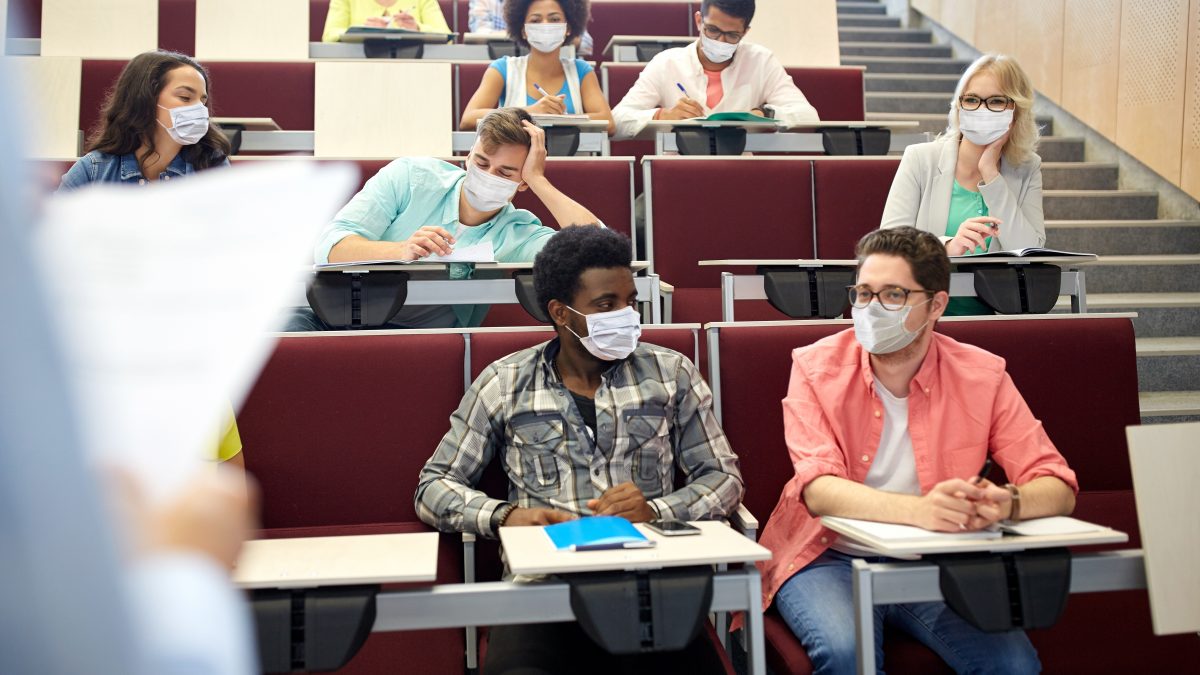More than three quarters of Scottish university students support face-to-face tuition over remote learning using digital technology, new survey results have revealed.
The poll also shows that restrictions on in-person learning have taken a toll on students’ mental health, with 73 per cent saying had a strong or slightly negative impact on them feeling anxious, and 77 per cent agreeing it had a strong or slightly negative impact on them feeling lonely.
Following a year of Covid-related upheaval and online learning, principals from Scotland’s 19 universities are now calling on the Scottish Government to provide clarity within the next fortnight on the arrangements for in-person teaching when the next academic year starts.
Alastair Sim, director of Universities Scotland, said: “University students have shown tremendous resilience in spite of all the disruptions to their education and wider way of life but we’re concerned that we’re reaching a tipping point in regard to student wellbeing and risk to progression unless we can move ahead to a more normal student learning experience in the early autumn. Access to education, at all levels, should be a priority as society re-opens.
“Universities need clarity within the next couple of weeks about what Scottish Government’s Covid guidance will be for the new term. Students need clarity that they can expect a step-change in access to safe in-person teaching. It’s not a case of simply throwing open the shutters. Universities have to timetable the education of over 250,000 students and hundreds if not thousands of different degree programme configurations and then set up classrooms and labs according to whatever distancing is required. It’s a gargantuan operation.
“Above all, we want a clear plan from Government and we feel students deserve as much certainty as it is possible to give. We need the Scottish Government to give our students, our staff and the institutions themselves clarity about what next academic year is likely to look like according to where the country is likely to be with the route map and to know how to run our classes if Scotland finds itself in any of the levels from 0-3.”
The data shows 76 per cent of students agreed or strongly agreed that teaching should be in-person. It also highlighted that 80 per cent of students felt the restrictions have had a strong or slightly negative impact on their personal progress with learning, while 90 per cent agreed or strongly agreed that they would be missing out on important aspects of university if there were still restrictions in place next year.
And amongst returning students, 71 per cent said they’d be worried about their ability to progress or complete their studies as effectively if online learning continued next year at the same level as last year.
Commissioned by Universities Scotland and led by YouthSight, the survey was completed by 552 students in May 2021, who were either studying at one of Scotland’s universities or had applied to do so.
This comes after the Scottish Government announced new summer support for students impacted by Covid-19 earlier this week. Students experiencing hardship over summer as a result of coronavirus can apply for financial support if they’re struggling to meet accommodation and other costs.
The government has also extended the national vaccination programme to international students, and published a list of frequently asked questions relating to students returning to college or university for term three.
Additionally, a ‘digital inclusion fund’ of £5m was announced last week by the minister for further education, higher education and science to support access to digital equipment and tackle digital poverty.
This includes £4.75m to support disadvantaged students by providing digital equipment needed to take part in online learning.
Many university applicants have already accepted offers to study from September, in order to meet a June 10 deadline from application body UCAS, but do not know how much in-teaching they can expect next year.
The end of June deadline is significant as universities estimate an eight-week planning horizon is necessary to timetable degree programmes for over 215,000 undergraduate and postgraduate students and reconfigure university estates in time for students to start.
Whilst the academic year starts in September for most students, thousands of pre-session students will have teaching in July and August. Universities have no details on what physical distancing arrangements should be in place for those students.
According to Universities Scotland, there are no known cases of transmission of Covid-19 in teaching environments in Scotland’s universities.
Last year saw teaching at university delivered as a hybrid of online and in-person, as restrictions allowed. However, 2 metres physical distancing requirements significantly limited the numbers of students who can benefit from in-person teaching to a maximum of around 10 per cent at any one time.




